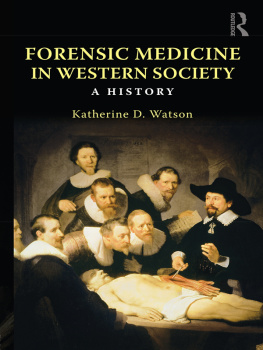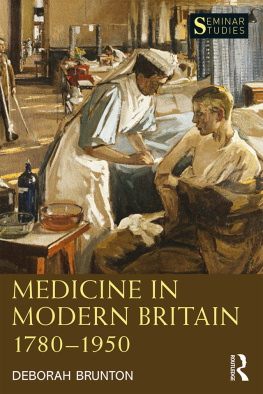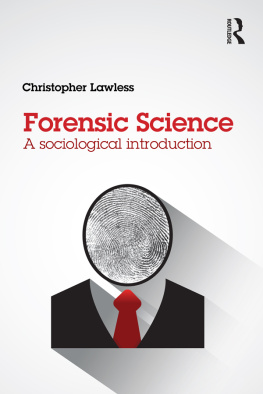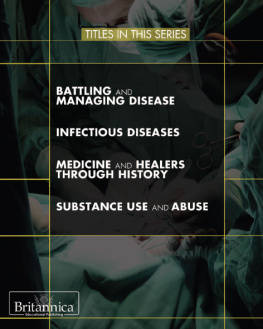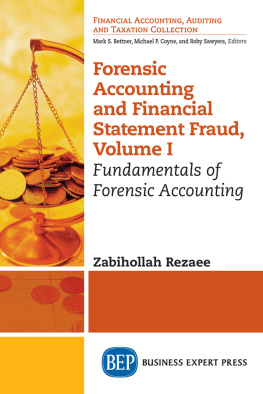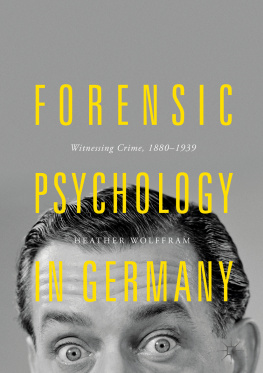Forensic Medicine in Western Society
Thefirst book of its kind, Forensic Medicine in Western Society: A history draws on the most recent developments in the historiography, to provide an overview of the history of forensic medicine in the West from the medieval period to the present day. Taking an international, comparative perspective on the changing nature of the relationship between medicine, law and society, it examines the growth of medico-legal ideas, institutions and practices in Britain, Europe (principally France, Italy and Germany) and the United States.
Following a thematic structure within a broad chronological framework, the book focuses on practitioners, the development of notions of expertise and the rise of the expert, the main areas of the criminal law to which forensic medicine contributed, medical attitudes towards the victims and perpetrators of crime, and the wider influences such attitudes had. It thus develops an understanding of how medicine has played an active part in shaping legal, political and social change.
Including case studies which provide a narrative context to tie forensic medicine to the societies in which it was practiced, and a further reading section at the end of each chapter, Katherine D. Watson creates a vivid portrait of a topic of relevance to social historians and students of the history of medicine, law and crime.
Katherine D. Watson is a senior lecturer in the history of medicine at Oxford Brookes University. She is the author of Poisoned Lives: English Poisoners and their Victims (2004), Crime Archive: Dr Crippen (2007) and editor of Assaulting the Past: Violence and Civilization in Historical Context (2007).
Forensic Medicine in Western Society
A history
Katherine D. Watson

LONDON AND NEW YORK
First published 2011
by Routledge
2 Park Square, Milton Park, Abingdon, Oxon OX14 4RN
Simultaneously published in the USA and Canada by Routledge
270 Madison Avenue, New York, NY 100016
Routledge is an imprint of the Taylor & Francis Group, an informa business
This edition published in the Taylor & Francis e-Library, 2011.
To purchase your own copy of this or any of Taylor & Francis or Routledges collection of thousands of eBooks please go to www.eBookstore.tandf.co.uk.
2011 Katherine D. Watson
The right of Katherine D. Watson to be identified as author of this work has been asserted by her in accordance with sections 77 and 78 of the Copyright, Designs and Patents Act 1988.
All rights reserved. No part of this book may be reprinted or reproduced or utilised in any form or by any electronic, mechanical, or other means, now known or hereafter invented, including photocopying and recording, or in any information storage or retrieval system, without permission in writing from the publishers.
British Library Cataloguing in Publication Data
A catalogue record for this book is available from the British Library
Library of Congress Catalog-in-Publication Data
Watson, Katherine (Katherine Denise)
Forensic medicine in Western society : a history / Katherine D. Watson.
p. cm.
Simultaneously published in the USA and Canada--T.p verso.
Includes bibliographical references and index.
1. Medical jurisprudence--Western countries--History. 2. Forensic
sciences--Western countries--History. I. Title.
RA1022.W47W38 2010
614.1--dc22
2010017797
ISBN 0-203-84029-1 Master e-book ISBN
ISBN 13: 978-0-415-44771-3 (hbk)
ISBN 13: 978-0-415-44772-0 (pbk)
ISBN 13: 978-0-203-84029-0 (ebk)
Contents
Acknowledgements
In writing this book I have benefited from the scholarship of many historians whose work has been both inspiring and thought-provoking, and from the support of friends (much more than mere colleagues!) at Oxford Brookes thank you all. Special thanks are owed to Cathy McClive for reading and commenting on various chapters, to Yves Mausen for providing many helpful (and hard-to-find) references, and especially to Eve Setch at Routledge, who has been integral to bringing this project to fruition. Thanks also to Fortunata Oates for her generous translations from the Italian. I am grateful for the financial support of the Wellcome Trust, which enabled me to travel, to read more widely than I had ever done before, and to consolidate key portions of the manuscript. This book is the product of my long interest in the history of forensic medicine, and in writing it I have learned a great deal about medical practice, law and crime in the West over a period of many centuries. But there is clearly so much more to be discovered, and I hope that others will be encouraged to explore this stimulating and rewarding area of history, in the archives and in the classroom. I therefore dedicate this book to all historians of forensic medicine, past, present and future.
Introduction
Every politically organized society is regulated by laws which its government must enforce, and it is in this context that forensic medicine is to be understood, as the application of medical knowledge and practice to the clarification of uncertain issues that come before the law courts. The importance of forensic medicine thus rests on its ability to contribute to the fact-finding processes typical of both the pursuit of legal solutions to disputes between individuals, and of the states duty to promote public security by preventing crime. The relationship between medicine and law is therefore one of shared responsibility in the areas of legal enquiry in which they meet, including criminal trials for a variety of forms of interpersonal violence and civil examinations into personal characteristics such as sanity and sexual potency. However, the relationship has not been equally developed at all times or in all places, for reasons largely to do with the organization of Western legal systems; although the history of forensic medicine is centuries old and its sphere of activity wide, its practice has been inconsistent. Medical practitioners have been asked to provide specialist opinions to help the courts reach just decisions, but the degree to which they could truly be considered expert has changed over time, as have their interests, methods and techniques. This book is concerned with the practice of forensic medicine in the West, with the main areas of the law to which it contributed, the development of notions of expertise, and medical attitudes towards the victims and perpetrators of crime and the wider influences such attitudes had. By the end of the book the reader will understand how medicine has played an active part in shaping legal, political and social change.
The origins of Western forensic medicine lie on the European continent; although the forensic activities and writings of the Chinese pre-date European developments, there is no evidence of their direct influence in the West.
One of the most durable terms, forensic medicine, arose in the German states in the middle of the seventeenth century. The first formal lectures under this title were given in 1650 by Johann Michaelis (160767), a professor of medicine at the University of Leipzig, but the course was primarily medical in content, not legal, and it was designed for the training of physicians employed by municipal authorities in caring for the poor, dealing with contagious diseases, and investigating deaths.

